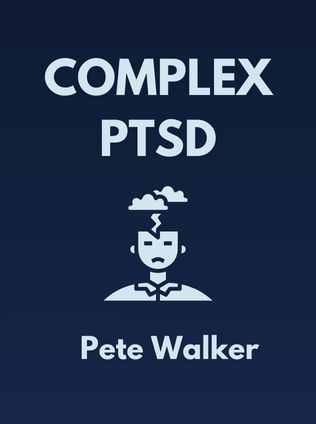
Complex PTSD
From Surviving to Thriving
By Pete Walker
Published 12/2013
About the Author
Pete Walker is a practicing psychotherapist with an extensive background in psychology and social work. His expertise is deeply rooted in over three decades of practical experience, working not only as a therapist but also as a writer, educator, and consultant for therapists. Walker's journey into psychotherapy is deeply personal, as he is a survivor of childhood trauma himself. This personal connection to the subject matter gives his work an authenticity and depth that resonates with many readers. His book, Complex PTSD: From Surviving to Thriving, is his second and most popular work, following his first book, The Tao of Fully Feeling, which delves into some of the topics discussed in Complex PTSD.
Main Idea
Complex PTSD: From Surviving to Thriving is a comprehensive guide that helps readers recognize and recover from Complex Post-Traumatic Stress Disorder (CPTSD). Walker meticulously explains the causes and symptoms of CPTSD and provides practical tools for recovery. The book is tailored for those who suffer from CPTSD, but it is equally valuable for anyone looking to understand the condition better. Walker's approach combines his professional knowledge with his personal experiences, offering readers both expert advice and empathetic understanding.
Table of Contents
- What is Complex PTSD?
- Trauma Responses: The Four Fs
- Physically Recovering from CPTSD
- Psychologically Recovering from CPTSD
- Emotionally Recovering from CPTSD
- Socially Recovering from CPTSD
- Tip for Healing: Embrace the Adequate
What is Complex PTSD?
CPTSD, or Complex Post-Traumatic Stress Disorder, is a psychological condition that arises from prolonged, repeated abuse or neglect, often during childhood. Unlike the more commonly known PTSD, which typically stems from a single traumatic event, CPTSD is the result of ongoing trauma. Walker emphasizes that this condition is not limited to those who have experienced physical or sexual abuse; it can also result from verbal and emotional abuse, or even emotional neglect.
The World Health Organization’s International Classification of Diseases, 11th Revision (ICD-11) recognizes CPTSD as a separate diagnosis, though the Diagnostic and Statistical Manual of Mental Disorders, 5th Edition (DSM-5) does not. This discrepancy highlights ongoing debates within the mental health community about how to categorize and treat complex trauma.
Understanding the Impact of Long-Term Trauma
Walker explains that the long-term effects of trauma can manifest in various ways, often making it difficult to diagnose. For example, chronic stress from CPTSD can lead to physical issues such as muscle tension and weakened immune systems, as well as psychological challenges like anxiety and depression.
"CPTSD is often misdiagnosed as various other psychiatric disorders…such behaviors are learned responses to stress and trauma rather than the results of a chemical imbalance in the brain." – Pete Walker
The Four Trauma Responses: Fight, Flight, Freeze, Fawn
Walker describes four primary trauma responses—Fight, Flight, Freeze, and Fawn—that are crucial to understanding CPTSD:
Sign up for FREE and get access to 1,400+ books summaries.
You May Also Like
The Subtle Art of Not Giving a F*ck
A Counterintuitive Approach to Living a Good Life
By Mark MansonRich Dad Poor Dad
What the Rich Teach Their Kids About Money - That the Poor and Middle Class Do Not!
By Robert T. KiyosakiHow To Win Friends and Influence People
The All-Time Classic Manual Of People Skills
By Dale CarnegieFreakonomics
A Rogue Economist Explores the Hidden Side of Everything
By Steven D. Levitt and Stephen J. Dubner



















